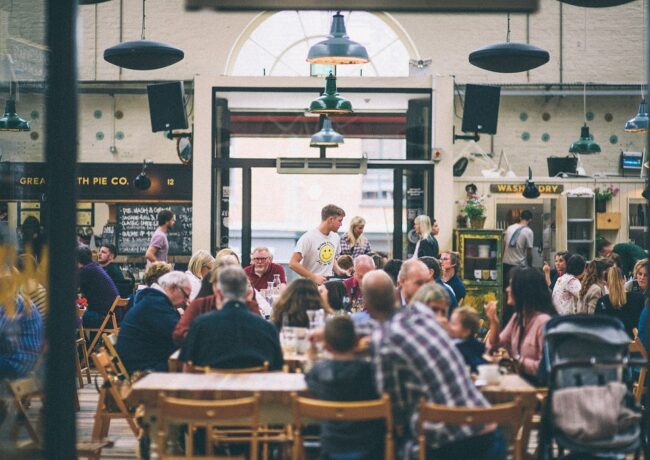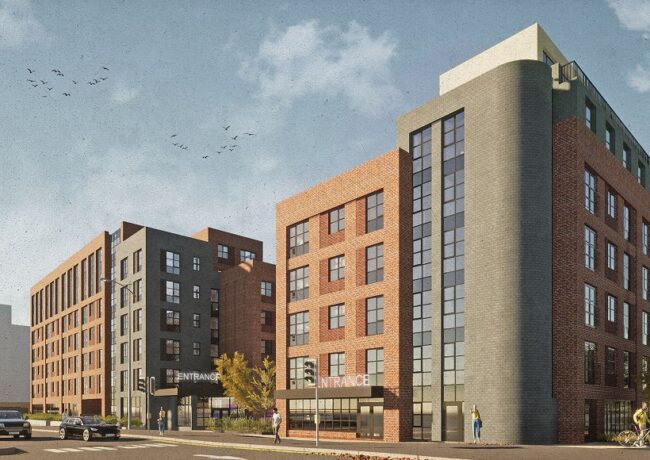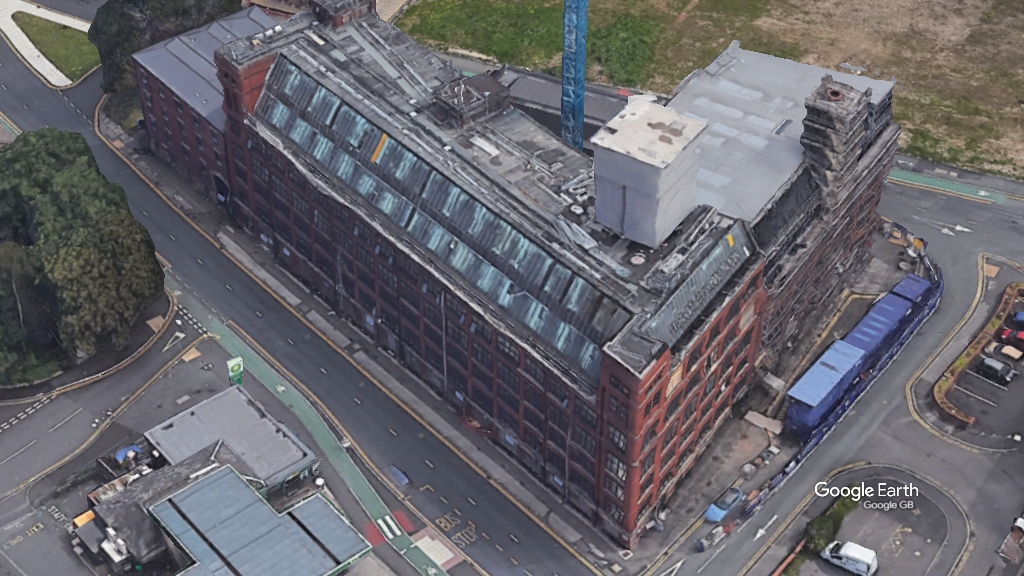Altrincham Market owner: we shouldn’t be punished for success
Nick Johnson, co-owner of the food market slapped with a 483% increase in business rates this year, said the company will appeal the amount and that he feels let down by Trafford Council.
Speaking to Place North West, Johnson said: “Altrincham Market has had a regenerative impact on the town and contributed to Altrincham being voted the best place to live in the country [by the Sunday Times this year].
“If you look at what we represent to Trafford borough and to Altrincham, you would think that someone would come out and say, ‘how can we, as a local authority, help you, because you are important to us?’
“But instead, we’ve got an increase in rateable value. It’s incredibly disheartening.”
Johnson and his wife Jenny Thompson, who run the market on Greenwood Street in the Greater Manchester suburb, claimed this week that their latest bill for business rates – the tax charged on occupation of non-domestic property – has increased to £92,000 per year from £16,000 the previous year.
The increase is due to the fact that the Government’s latest estimate of the value of the commercial premises that the market occupies has risen to £181,000 per year, from £31,500 the year earlier.
Business rates are calculated using a property’s ‘rateable value’, its estimated value on the open market. The valuations are carried out by government body the Valuation Office Agency, which feeds that information on to local authorities that then invoice occupiers.
In the case of Altrincham Market, the increase in rateable value appears to be due to a change in the venue’s designated use. While it was previously designated as a ‘market’, the latest invoice states that it is a ‘market and food hall’, according to Johnson.
The market, which Johnson and Thompson rent from the council, closed on 23 March due to the lockdown restrictions, and the new tax bill, received last week, has been backdated to that date.
Johnson says he was not warned or consulted about this change, even if the business has diversified since 2013 when it began. He said Altrincham Market “should not be penalised for being successful”.
Trafford Council has distanced itself from blame, explaining that it does not set local business rates and has contacted the VOA to query the increase but received no response.
A statement from Trafford Council said: “Contrary to some false reports in the media and on social media, Trafford Council does not set the rates, this is done by the Government’s Valuation Office Agency. We collect them on the Government’s behalf, which is our statutory duty.”
The Government has imposed a temporary freeze on business rate payments to help businesses cope with the effects of the pandemic, meaning the market will not have to pay its bill immediately. In the interim, the money owed will be paid to the council by Whitehall.
The Mackie Mayor food hall in Manchester city centre and the Picturedrome in Macclesfield, which Johnson and Thompson also own, have not been subject to a rise in business rates, according to Johnson, who added that he is currently paying between £1,000 and £1,500 a week to prop up Altrincham Market after agreeing to postpone individual stallowners’ rent payments.
The timing of the rates increase is therefore “disheartening”.
The business owners are permitted by law to appeal to the VOA and contest the size of their bill, and they intend to do so. However, if an appeal is unsuccessful, the rates increase will be reflected in occupiers’ rental costs and other fixed overheads, which could “push people over the edge”, Johnson told Place North West.
While Altrincham Market is in good financial shape, he said, he fears for the future and is concerned about the impact that prolonged social distancing measures could have on the retail and property industries.
“When we reopen there may be a 75% reduction in our turnover,” he said. “Social distancing measures mean places that celebrate human interaction are going to struggle to stack up their business model and that’s a big worry.
“We employ 300 staff and if suddenly the Chancellor says Government can’t afford to underwrite payroll anymore [through the furlough employee retention scheme], that could be the death knell for the restaurant industry.”
If the furlough scheme stops, Altrincham Market would have to make around 35% of its staff redundant, Johnson said, and leave the business “rattling around, somehow trying to piece together a business around social distancing measures.”





